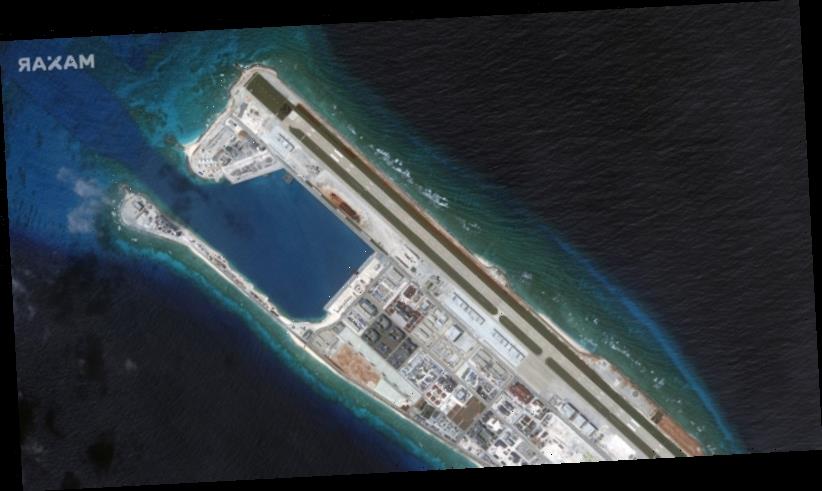Jakarta: Rodrigo Duterte's extraordinary presidency has seen human rights trampled on, political and media opponents targeted and a bloody fight with Islamist separatists in southern Philippines.
But it's the re-orientation of the country's foreign policy away from the United States and towards China since his 2016 election that is potentially most significant for Australia and for south-east Asia.
The formal announcement by Duterte’s government on Tuesday that it had notified the United States it was scrapping the Visiting Forces Agreement, which helps provide the legal platform for American military presence in the country, could mark a step change in the region's strategic balance.
Amphibious Assault Vehicles, AAVs, carry American and Philippine troops in joint exercises in April.Credit:AP
The Philippines, along with China, Malaysia, Taiwan and Vietnam are all claimant states to part or all of the South China Sea.
It's a contest over oil and gas resources, fishing stocks and land with the five countries occupying more than 70 disputed reefs, islets and reclaimed territory.
Australia, which mostly tries to keep its nose out of this dispute, is the only other country with a Visiting Forces Agreement (ratified in 2012) with the Philippines and has played a small but important role training soldiers for the fight in the country’s south.
Policy makers will be watching the announcement nervously. Canberra treads softly in this part of the world but with an unpredictable president under China's sway, it's hard not to wonder if we might be next to be ejected.
The million dollar question is whether Duterte will actually follow through with his much-threatened US withdrawal in the next 180 days.
Beijing infuriated Jakarta last month when a large flotilla of Chinese fishing vessels, accompanied by China's powerful Coast Guard, entered Indonesia's Exclusive Economic Zone. Those same boats also passed through Malaysian waters and the incursions highlighted once again just how assertive Beijing has become in the South China Sea.
A US Coast Guard vessel, right, and a Philippine counterpart conduct joint exercises off the South China Sea west of the Philippines last year.Credit:PCG/AP
Duterte's Foreign Secretary Teddy Locsin and Defence Secretary Delfin Lorenzana have both warned publicly against the drastic move, while elements of the Philippines' Defence establishment have also pointed out how costly abrogation could be.
The United States military provides assistance to the Philippines in three key areas – during natural disasters, in tackling Islamist extremists and in deterring China's expansionist ambitions in the South China Sea.
Filipino political analyst and Duterte critic Richard Heydarian says China could try to militarise the Scarborough Shoal, a collection of rocks and reefs 190 kilometres west of the Philippines that China effectively controls but has not built on, if "the nuclear option" of the agreement cancellation happens.
"China is the biggest beneficiary if this goes ahead…they could go all in and take advantage of this" Heydarian says, referring to the Shoal, though he suggests China won't be overly hasty.
Australian National University security expert John Blaxland suggests cancelling the agreement could be a Duterte negotiating tactic. A back down, with concessions from Washington, could be the outcome.
Rodrigo Duterte is kicking US troops out of the Philippines.Credit:AP
"[But] it's conceivable that Duterte could do this and there is a deal with China in the wings."
Abrogating the agreement would see US special forces and training teams leave and potentially even intelligence sharing end – a blow in the fight against Islamist radicals.
That, in turn, would impact on Australia as a partner in that fight and neighbour.
But it's not just in the fight against terrorism that we would lose out.
A cloud of debris rises as Philippine fighter jets bomb a suspected Islamist militant location in Marawi during a protracted battle in 2017.Credit:AP
Cancelling the agreement, even if the US-Philippines Mutual Defence Treaty remains in place, would have major implications for strategic balance in the region.
In the great power contest underway throughout south-east Asia, Australia's preeminent ally, the US, will have lost one of its regional strategic foot holds – and China will be the beneficiary.
Source: Read Full Article




